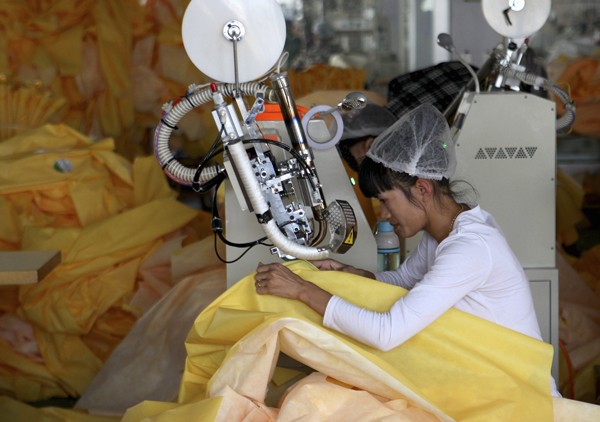Angela Li was fresh out of college when she worked as a teller in China Everbright Bank. A year and a half later, she applied for promotion, and among those eligible for the position was a male colleague. The male colleague was promoted and she was not.
Li said that her boss came to talk with her afterward. "He said, 'It's good that you girls take your work seriously. But you should be focusing on finding a boyfriend, getting married, having a kid'."
Li later quit the job, saying she can only compete in terms of ability, not gender.
With China's shift to market economy, women are again being relegated to inferior positions, a far cry position from what used to be held as model women in Asia, starting with Chairman Mao Zedong's declaration that women "hold up half the sky."
Recently, state media promulgated reports about "wonder women," featuring Chinese women who succeed in business. They, however, did not state that the shift to market economy which created opportunities for Chinese women also triggered the return of patriarchal values where women were regulated to the home, not minding their political surroundings.
Of late, more and more women are opting to remain at home, reaffirming that it is their place. So, more and more wealthy men keep mistresses, a practice which echoes the long-repressed concubine system.
The market shift affected even those women who are already working. The socialist egalitarianism was replaced by sexism, which in some cases, even promulgated by the law. Take for example the legal retirement age. Retirement age for men falls at 60, while 50 to 55 for women. This discrepancy is explained with the logic that says women must retire early because they are supposed to take care of the young, the sick and the elderly.
Prominent Chinese feminist Feng Yuan said about the issue: "The media has been publicising individual cases of successful women, but overall there isn't space for women to develop in the economic realm. Women's status has not improved, and in some areas has regressed."
Women are losing their positions at work and their representation is steadily decreasing in every rung of the workplace ladder. 2010 Census said that although women make up 44.7 percent of the entire working class, the percent of women with responsibility were just 25.1 percent of the entire working force. The higher the position, the smaller number of women.
China's corporate records reveal that only one in 10 board members are women, a significantly smaller proportion compared to women on corporate boards in the United States.
However, Gree Electric president Dong Mingzhu blames the women for their treatment in the workplace. She said: "Women don't try hard enough. They are too happy to go off and find a man to rely on."



























